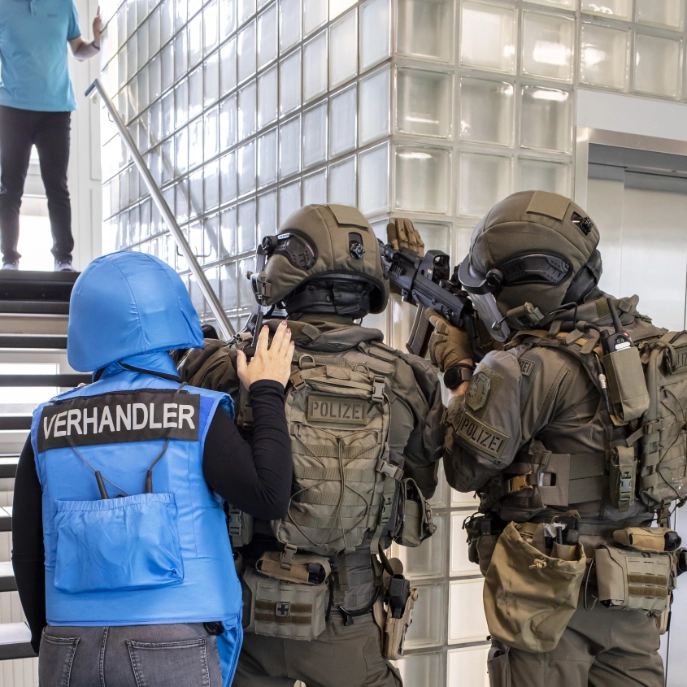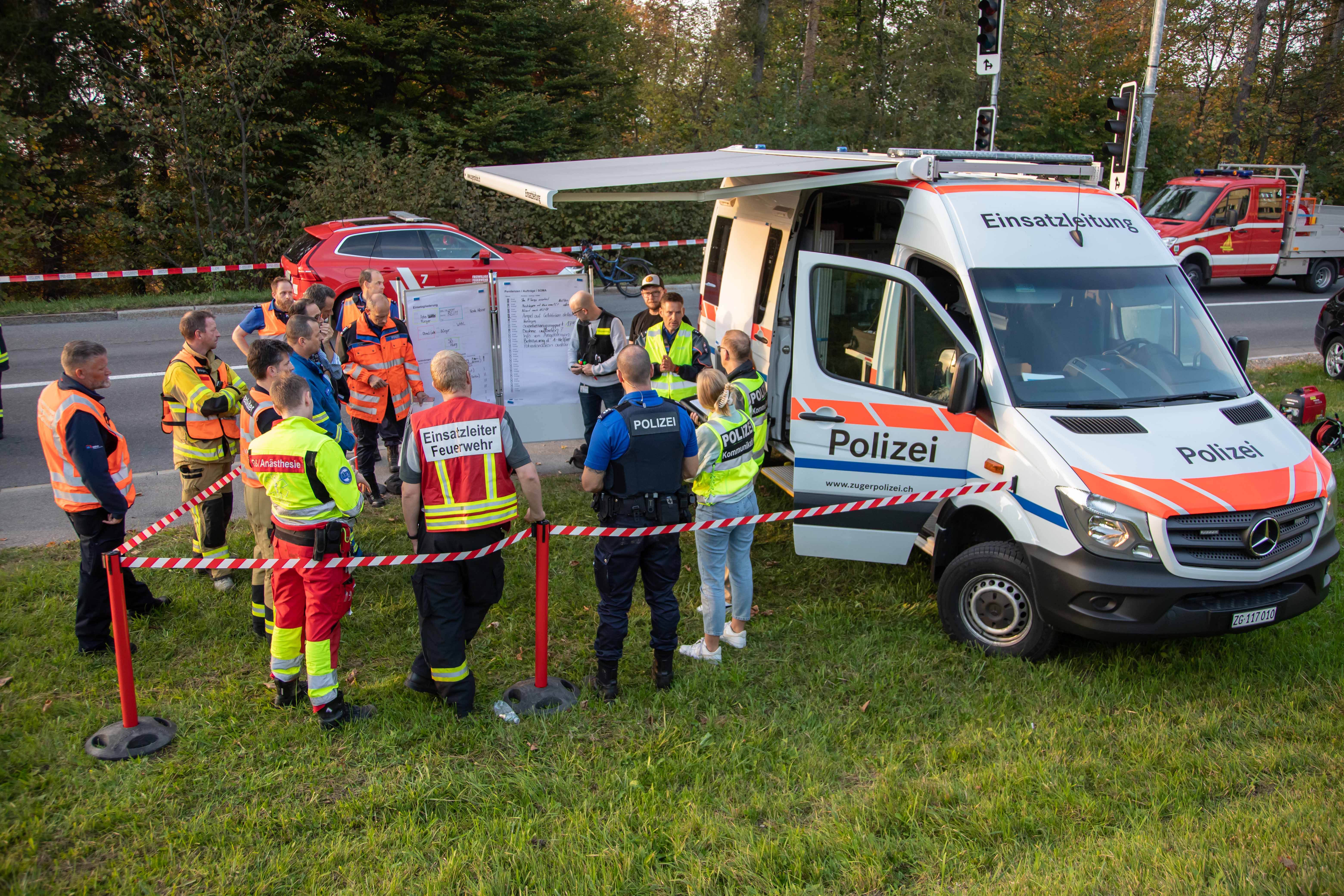Planning, Organization and Special Units
In addition to planning operations and managing spontaneous incidents, we also carry out effective assessments of all our operations. This allows us to provide substantial benefits to operations leaders and frontline forces.

Services of the Planning, Operations, and Special Units Department
Our investigators carry out preventive and repressive measures against petty crime. The focus is on burglary, theft, fraud and drug-related offenses. They also fight illegal employment and carry out milieu checks. As part of these checks, they regularly inspect businesses in a wide range of sectors and establishments for violations of the Foreign Nationals and Integration Act and the Gambling Act.
Our investigators usually operate in urban areas in plain clothes, searching for wanted persons, vehicles and stolen goods. If they discover any crimes, they investigate and report to the public prosecutor.
Our special investigators investigate and analyze information related to serious crimes. Their goal is to gather incriminating or exculpatory evidence in order to convict perpetrators and exonerate the innocent.
In close cooperation with specialized police services and the Office of the Public Prosecutor, the Special Investigation Service coordinates national and international manhunts for serious crimes. Our specialists provide support in the form of preventive investigations and in high-risk situations (e.g. emergency searches for missing persons) with their expertise and technical equipment.
Our specialists are responsible for providing realistic training, thus ensuring that our police officers can act safely and professionally even in difficult situations. This operational training includes topics such as police tactics, shooting, self-defense and security services.
Our intervention and action team supports spontaneous and planned operations with its in-depth knowledge of police tactics. Our specialists also plan special operations and lead security operations during demonstrations or sporting events.
Our Command Support Service team assists the heads of operations in planning operations and managing incidents.
The employees issue event permits, working closely with organizers and external partners. Their core tasks also include central duty planning. This ensures that we, as an organization, can respond quickly and efficiently to incidents or phenomena.
The Operations Control Center handles around 100,000 calls a year – a sixth of which are emergency calls to the numbers 117, 118, 112, as well as 1,000 automatic burglary or fire alarms. This results in around 20,000 operations a year.
The heads of the operations center coordinate and manage operations, support the patrols and, if necessary, alert partner organizations such as the fire department, ambulance service and other specialists. It is clear that a great deal of organization, technology and experience goes into each operation.
The 16 employees do everything in their power to be available to the public quickly and with the right resources, 24 hours a day, 365 days a year.
Special units
Most of our special units are organized according to the militia system, while some are semi-professional. This means that members have regular duties and are called up for deployments and training. They operate independently but also collaborate as a group. The special units include the following divisions:
Our intervention unit Luchs is deployed for delicate arrests. However, our lynxes are also responsible for the protection of personalities from the world of politics and business.
Our four-legged friends have an unbeatable sense of smell. We therefore rely on their keen sense of smell and have several protection dogs, narcotics detection dogs and other specialized dogs. All police dogs are also family dogs and live with the police officers at home.
“Talk to me – let's work together to find a non-violent solution”. This is the motto of our police negotiators. When a person barricades themselves in an apartment, our negotiators are called in.
They develop a personality profile of the person, define a strategy for talks and conduct talks with the person, which can be quite intense at times. Their goal is to end a situation without escalation. Their tasks also include supporting and emotionally stabilizing relatives.
One third-dimension resource is the drone. We have several operational drones that can be deployed with the appropriate optics and security systems.
Drones open up a new perspective for the police. They can be used to survey crime or accident scenes from the air with millimeter precision and create three-dimensional models from the images. This gives investigators a better overview of a crime or accident scene. Since the drones are equipped with a thermal imaging camera, they can also be used to search for missing persons.
Police drones can also be used for reconnaissance or surveillance, for example at major events or demonstrations. The main focus here is on crowd management and traffic monitoring. Data protection is taken into account.
Helicopters are particularly suitable as a means of deployment and command for the police due to their mobility and speed, as well as their independence from airports and traffic routes. The helicopter is primarily used for search flights, traffic monitoring and photo assignments.
Monday 08:00 - 11:45 13:30 - 18:00
Tuesday to Thursday 08:00 - 11:45 13:30 - 17:00
Friday 08:00 - 11:45 13:30 - 16:30
Bitte beachten Sie, dass vor offiziellen Feiertagen spezielle Öffnungszeiten gelten.
Im Notfall wählen Sie den Polizeinotruf 117.




